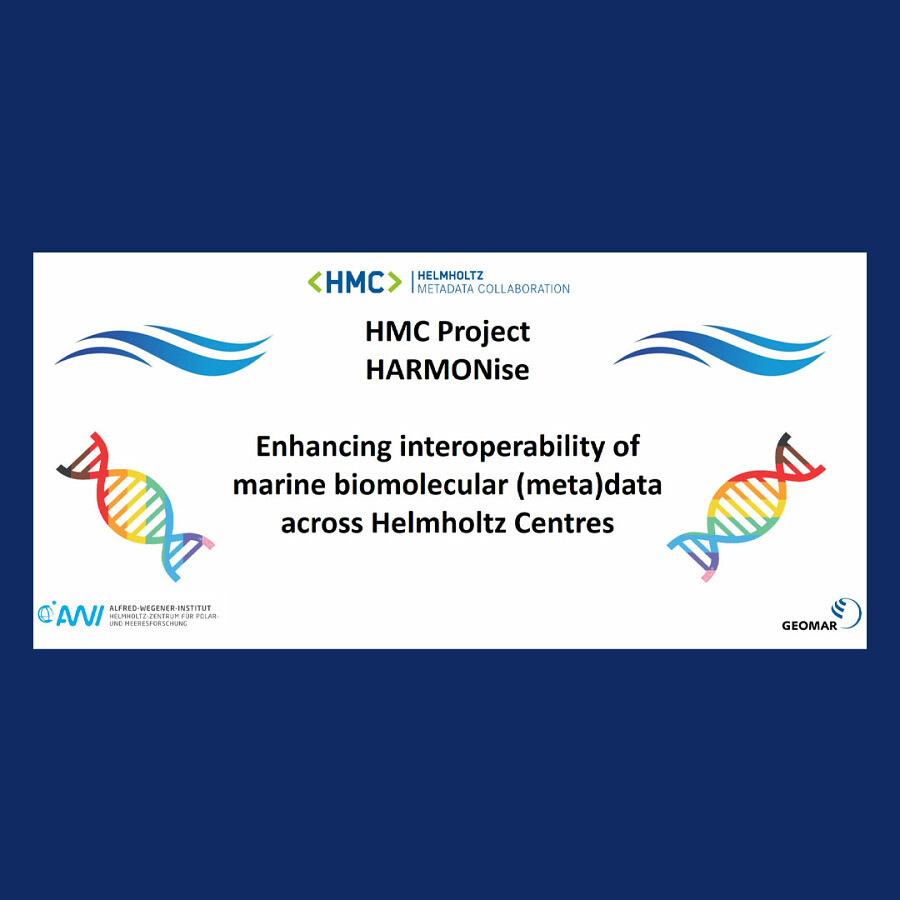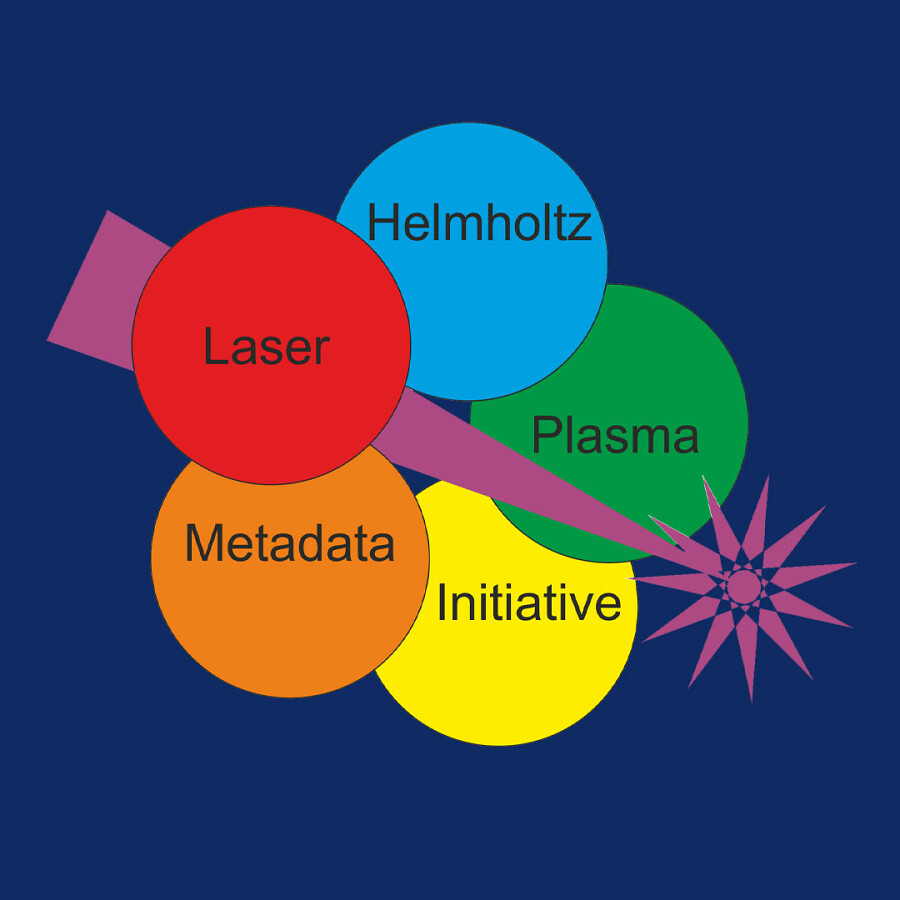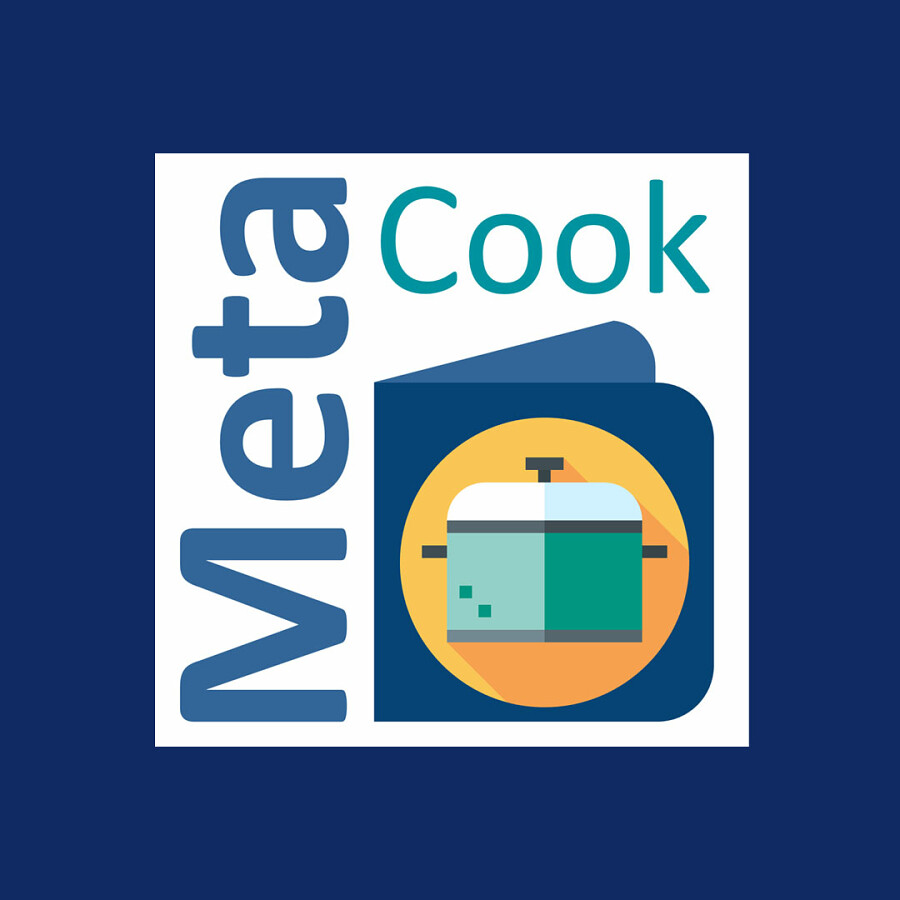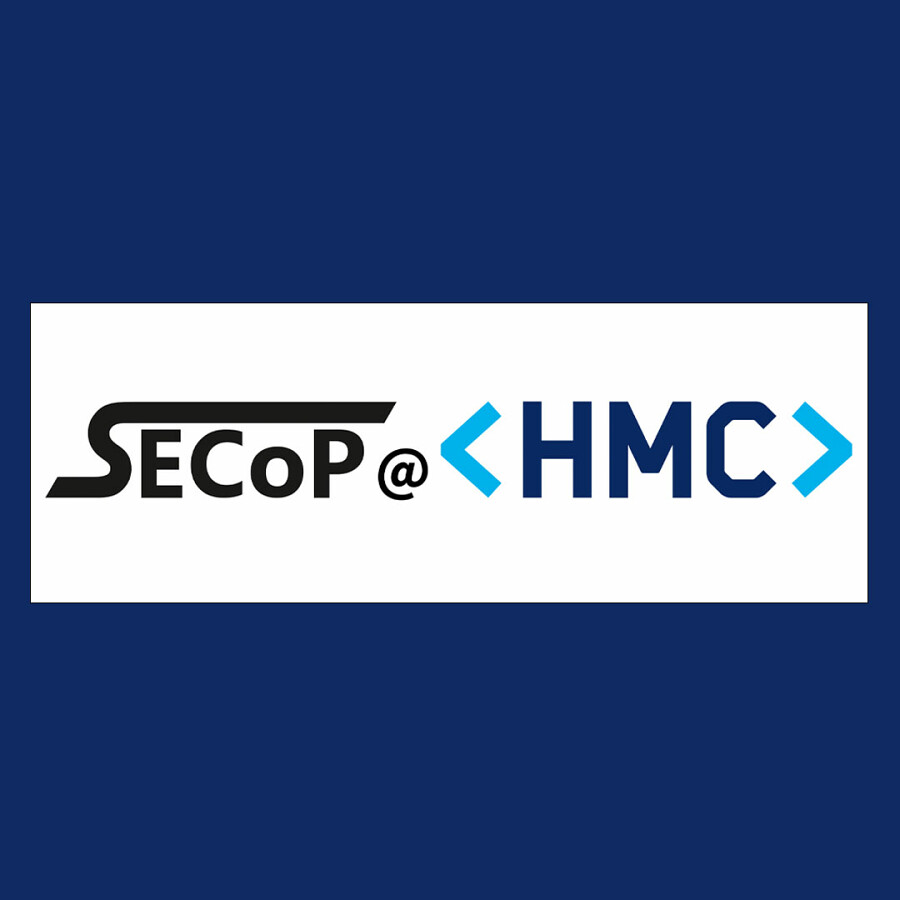
HMC Project Overview
In HMC, project calls are a tool to foster the continuous development of the HMC community - the annual call is a key in activating and involving the Helmholtz community.
On this page, you’ll find an overview of all projects funded through the HMC project call to date. Across five funding rounds, a total of 36 projects have received support. The most recent funding round, held in 2024, supported 8 projects, while the 2023 round funded 6 projects. In 2022, 7 projects were selected, followed by 6 projects in the 2021 call, and 9 projects in the inaugural 2020 call.
Take a moment to browse through these exciting initiatives, filter by year, or dive into their current progress and status.

ADVANCE: Advanced metadata standards for biodiversity survey and monitoring data: Supporting of research and conservation
The project aims at supporting metadata generation with interoperable metadata standards using semantic artefacts that facilitate access to, integration and reuse of data from biodiversity research of Helmholtz Centres for research and applied biodiversity conservation, focusing on monitoring data and the integration of data from the terrestrial, freshwater and marine realms.

AIMWORKS – Agentic Multimodal Workflows for Ontology-based Representation and Knowledge Systems
This project develops a FAIR-compliant, AI-enhanced knowledge graph framework that integrates heterogeneous data – encompassing materials synthesis, characterization, testing, and manufacturing processes – for hydrogen technologies.

ALAMEDA: A scalable multi-domain Metadata management platform
ALAMEDA proposes a standards-based metadata management system that prioritizes the end user perspective. This will allow access, search and compare meta-information across databases with an automated metadata enrichment utilizing available DataHub tools, implemented exemplary for soil moisture and stable isotope geochemistry.

AutoPeroSol: Towards automatic data management and a common ontology for perovskite solar cell device data
This HMC project will create an automated data flow to facilitate data and sample sharing among partners and collaborations in the field of next generation multi-junction solar cell devices.

BeStMeta – Behavioral Standard Metadata
Behavioral Standard Metadata: Developing metadata standards and FAIR analysis pipelines for Video Tracking Assays (VTAs) in toxicology and medical sciences

CellTrack: Tracking the cell - metadata for single-cell genomics in biomedicine
CellTrack aims to revolutionize single-cell genomics by developing robust metadata standards for capturing complex multi-layered data associated with individual cells. Coordinated by Oliver Stegle and Fabian Theis, this project leverages existing research and infrastructures to create a comprehensive toolchain for managing, manipulating, and visualizing metadata, thus enabling more effective clinical trials and health research.

eFAIRs: Enhancing FAIRness in seismological data management
The project plans to achieve a FAIR data management of ocean bottom seismometer (OBS) data sets by integrating them into the routine data management workflows for long term archival at seismological data centre. Moreover, consistently with the land stations, we plan to integrate instrument PIDs and automate the metadata creation process.

ELN-DIY-Meta: ELN-Driven InteroperabilitY for Metadata
In this project, a method for metadata and data transfer between the open-source ELNs Chemotion and Herbie will be developed. The project will aim for a generalization of the specific process via the description of a general guideline and the implementation of available standards. The concept will be demonstrated for the use case of polymer membrane research.

ELN-RO – Enabling Interoperability between ELNs and RO-Crates
This project enhances interoperability between ELNs and RO-Crates by developing standardized metadata mapping and tools for seamless data exchange. Focusing on experimental workflows in the chemical and life sciences, ELN-RO will provide a scalable solution to improve data management, sharing, and reproducibility, contributing to broader research initiatives.

EReMiD – Enhancing reuse of microbiome data
Enhancing reuse of microbiome data (EReMiD): AI-assisted data type categorization and ontology alignment across different disciplines

FAIR WISH: FAIR Workflows to establish IGSN for Samples in the Helmholtz Association
Establishing standardised IGSN workflows for samples in the Earth Science community within the Helmholtz Association. IGSN is a globally unique, citable and persistent identifier (PID) for physical samples with discovery functionality in the internet.x

FDO-5DI: FAIR Digital Objects for 5D imagery of our and other planet(s)
The aim of this project is to develop interoperable metadata recommendations in the form of FAIR digital objects (FDOs) for 5D (i.e. x, y, z, time, spatial reference) imagery of Earth and other planet(s). The main expected benefit would be to achieve more effectiveness and efficiency in managing, publishing and interpreting imaging data for both domains either in exploring the ocean floor or planetary surfaces and in between.

HARMONise: Enhancing interoperability of marine biomolecular (meta)data across Helmholtz Centres
This collaborative project will develop sustainable solutions and digital cultures to enable high-quality, standards-compliant curation and management of marine biomolecular metadata to better embed biomolecular science in broader digital ecosystems and research domains.

HELIPORT: HELmholtz ScIentific Project WORkflow PlaTform
The project aims at developing a workflow platform which accommodates the complete life cycle of a scientific project and links all corresponding programs and systems to create a more FAIR and comprehensible project description.

HELPMI: Helmholtz Laser-Plasma Metadata Initiative
HELPMI will develop a metadata standard for experimental data of the global laser-plasma community. To date, this community is widely using openPMD, an open meta-standard, established for the domain of simulations.

HERMES: Helmholtz Rich Metadata Software Publication
The goal of this project is to support researchers in publishing their research software, in a way that makes it findable, comprehensible, citable and reusable. The key to this is the creation, curation and deposit of rich metadata with software publications.

LabFriend – Laboratory Assistant for User-Friendly Metadata Management
LabFriend - Laboratory Assistant for User-Friendly Metadata Management

M3eta: An extensible metadata scheme for advanced momentum microscopy in the age of big data
M³eta aims to establish an extensible and sustainable metadata scheme for momentum microscopy, which will be stored together with the measured data voxels. This will be the basis for a standardized work-flow that interprets the stored metadata and to reconstruct views of the multidimensional electronic structure of a material.

MEMAS: Metadata Enriched Manufacturing data for Automated Simulation
Manufacturing of composite parts involves multiple process steps, which each involve large datasets generated from processing machines or surrounding sensors. With help of the recently developed data management system shepard, the project MEMAS aims at storing and connecting these manufacturing data in a persistent way.

MeSyTo - Metadata frameworks for facilitating interoperability in systems toxicology and pharmacology
Metadata frameworks for facilitating interoperability in systems toxicology and pharmacology

MetaCook: The Metadata Cookbook
In summary, MetaCook creates a framework for the preparation of (1) FAIR Vocabularies, and (2) FAIR Ontologies. The VocPopuli software engages users in a Git-based collaborative composition of controlled vocabularies which are then converted via semi-supervised machine learning into ontologies with the help of OntoFAIRCook.

MetaMap3: Metadata generation, enrichment and linkage across the three domains health, environment and earth observation
MetaMap³ deals with the compilation, generation, and enrichment and mapping of machine-readable and interoperable metadata schemes for exemplary data of the three domains Health, Earth & Environment and Aeronautics, Space & Transport.

Metamorphoses: Metadata for the merging of diverse atmospheric data on common subspaces
This project will develop enhanced standards for storage efficient decomposed arrays and tools for an automated generation of standardised Lagrange trajectory data files thus enabling an optimised and efficient synergetic merging of large remote sensing data sets.

MetaMoSim: Generic metadata management for reproducible high-performance-computing simulation workflows
The project aims at developing a generic, cross-domain metadata management framework to foster reproducibility of HPC based simulation science, and to provide workflows and tools for an efficient organisation, exploration and visualisation of simulation data.

MetaSeis - Metadata concept for OBS and 3D Seismic data for the German community
Within MetaSeis, we will develop a unifying data infrastructure and prepare for future archival of 3D reflection seismic data and active OBS data from recent and future research cruises. We aim to adopt and extend existing standards and interoperable vocabularies including metadata quality and validation checks, and to establish a distributed infrastructure for data curation by harmonized data workflows with connections to international data repositories.

MetaSupra - Interoperability for Surface Data diving from Surface to Structure
Interoperability for Surface Data diving from Surface to Structure

MetaSurf – Interoperability for Surface Data diving from Surface to Structure
The MetaSurf project aims to apply FAIR principles to surface science data, enhancing its management and accessibility. By integrating advanced computational tools into Kadi4Mat, it seeks to automate processing and create a standardized public data repository. This initiative focuses on developing metadata-centric tools and workflows to support efficient data exchange and management.

MicroMacS – Microbiome Machine for Synthesis
Microbiome Machine for Synthesis: Domain-specific application of FAIR data assessments for automated metadata harvesting

MISO: Metadata for Ionospheric and Space Weather Observations
The project aims to develop meta data standards for interoperability of spaceborn data from different satellites and communities.

MOIN4Herbie
MOIN4Herbie addresses the lack of digitized maintenance metadata in Helmholtz’s research areas Information and Earth and Environment. To this end, MOIN4Herbie will extend the electronic lab notebook Herbie with ontology-based forms to deliver digital records of sensor maintenance metadata for two pilot cases: The redeployed Boknis Eck underwater observatory and the Tesperhude Research Platform.

PATOF – From the Past to the Future: Legacy Data in Small and Medium-Scale - a Blueprint for PUNCH and Other Disciplines
The focus of PATOF is on making the data of the A4 experiment (and in future those of ALPS II, PRIMA, P2, and LUXE) publicly available and usable. In addition, a “cookbook” will be provided that captures the methodology for making individual experiment-specific metadata schemas FAIR, and a “FAIR Metadata Factory” will be described, i.e. a process to create a naturally evolved metadata schema.

SECoP@HMC: A standardized interface for sample environment metadata and control - SECoP integration into experiment control systems
The Sample Environment Communication Protocol (SECoP) provides a generalized way for controlling measurement equipment – with a special focus on sample environment (SE) equipment. In addition, SECoP holds the possibility to transport SE metadata in a well-defined way.

Semantic x-Lab – Semantic Search on Ontology-based Descriptions of Laboratory Workflows, Resources and Data in Helmholtz
Semantic Search on Ontology-based Descriptions of Laboratory Workflows, Resources and Data in Helmholtz

Software CaRD - A curation and reporting dashboard for compliant FAIR software publications
A curation and reporting dashboard for compliant FAIR software publications

STAMPLATE: SensorThings API Metadata ProfiLes for eArTh and Environment
The HMC-funded STAMPLATE project aims to implement and establish the SensorThings API (STA) of the Open Geospatial Consortium (OGC) as a consistent, modern and lightweight data interface for time series data. Using representative use-cases from all seven research centers of the Helmholtz Research Field Earth & Environment, we ensure transferability and applicability of our solutions for a wide range of measurement systems. Our project is, hence, making a decisive contribution towards a digital ecosystem and an interlinked, consistent, and FAIR research data infrastructure tailored towards time-series data from environmental sciences.
